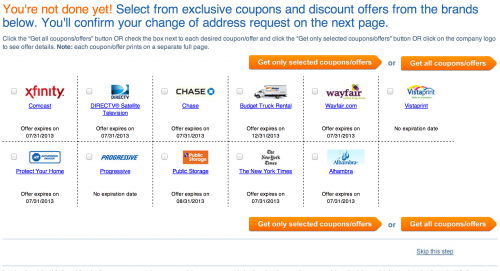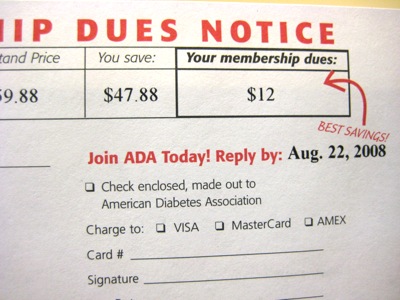The other day I noticed a sign while waiting at a traffic light. It claimed that I could earn “CEO-level” income working at home and had an 800 number (for those of you outside the U.S., these are toll-free numbers typically used by businesses) to call, in this case, (800) 790-8061. I figured that like most “Work at home! Be your own boss! Unlimited potential! Look at me holding wads of cash in front of a yacht! Read this lengthy page of testimonials that says absolutely nothing about the actual job you’ll be doing!”-type ads, it would be a pyramid scheme. That’s exactly what it what it was. If you don’t want to read about this particular version of a scam that’s been done a zillion times, you can stop here; it’s nothing new. If you’d like a taste of what it’s like to “fall” for one, feel free to continue.
Wasting the time of scammers is a small hobby of mine. I used Skype a bit in college to make calls when I didn’t have good cell service in my apartment, and after that situation improved I found myself with about $10 of credit. I burned it on cheap international calls to spammers who left their phone numbers in lottery spam emails. “Dr. Michael Scott” had ridiculous phone numbers like +5 555 555 555 5555 x555, extremely long randomly-generated email addresses, confirmation codes with the letter “q” repeated an incredible number of times, and odd demands like requesting a million dollar prize to be reduced to $999,999.99 “for tax reasons.”
Since then, I’ve wasted the time of exceptionally annoying marketers, especially if their businesses are deceptive or even illegal. I don’t have a landline, but when I did, I was generally nice and handled the standard telemarketer with a quick “Not interested. Put me on your do not call list” so neither of us had much wasted time. I’m not a jerk to everyone. But, when I’m repeatedly called on my cell phone (from callers spoofing their caller ids) about a fictitious expiring car warranty, it’s on. The last time one of them called I answered, went through the questions to the second person (it’s some sort of affiliate-based scheme, where one person refers you to the next with a unique code), and then put them on hold before continuing on with my day. They hung up after 12 minutes and haven’t called back. Pat, Nate, and Mike also had some fun with them, and according to Nelson, one of them was able to get the spammer to hold for over an hour.
And now, back to that sign. I decided to call the 800 number to see what it’s like to join one of these schemes. I’m particularly angered by them during a period of rising financial hardship, since they prey upon those who are desperate for cash. More on that later. When I called the number, I was greeted with a recording about making money with a proven system or whatnot that was several minutes long, which finally asked me to leave my name and number. I did.
The next day, someone from a local number called and began to “interview” me. She started off by saying something about starting the business with her husband in Scottsdale, Arizona. This of course is totally bogus, as she does not own the business and is just a victim of what she’s trying to trick me into buying. She then went into a schtick where she asked me very important interview questions like “How much do you want this?” and “How much would you like to earn?” and claimed that she’d hang up if I’m willing to settle for anything less than a million dollars a year. Of course, no matter how uninterested and incompetent I sounded, the conversation continued, for a full 14 minutes, without any stalling on my part. My favorite part was when she asked me if I knew the difference between direct sales and MLM. When I said, “I heard MLM is mostly scams,” she actually told me that the entire industry was made of legitimate businesses. Doesn’t she know that she’s supposed to earn my trust by claiming that 99% of them are scams, she’s been scammed by them before, and has finally found the one that actually works? It didn’t matter, though, because she claimed that what she was offering wasn’t MLM. Phew. The interview must have been going pretty well at that point, and she told me the next step: call into a conference call, listen to more information, and then call her back if I was interested. This point was kind of interesting, because I asked her if she could give me any more information about what would be required of me for the job. She said that she couldn’t, because all I’d need is some quick information from the call and then I could get started. “You’ll do what I do,” she said. “All you need to do is put people on the phone.” Ha! In a call less than 14 minutes long she had gone from “I started this business” and “This isn’t MLM” to “You’ll do what I do.” Well, this all sounds good to me. Conference call it is. Oh, and she confirmed the email address I had left in my earlier message. “That’s an interesting address,” she said. “I actually went there when I heard your message, because I wondered how someone could get a haircut online.”
But before we get to the call, what industry would I, an unemployed man with no money who had just fooled around with websites in school be entering? “Personal development,” is what she told me. I translated it for her: “Self-help.” That’s right, if there is any product that’s actually sold as a result of this, it’s tickets to motivational seminars or inspirational videos. Thrilling. I wonder if I could get a discount.
Getting to the last bit here… I called into the conference call, which she said would run 20 minutes, about 10 minutes into it. It sounded like it was actually live, but I didn’t want to break my character just yet and resisted un-muting myself and asking why I should fall for a pyramid scheme. I found out the company name, “Liberty League,” a “company built on integrity.” The scheme was called “Beyond Freedom,” and was told, “If you can place ads and call people back, and get them to be on these calls, I think you understand what you need to do.” Yes, I understand. But they wanted to be completely sure that I understood the exact structure of the program, and said, “Just place people on these calls,” that’s all I’d have to do. They then had, after a lengthy disclaimer, a series of live testimonials. Of course! Both of these calls sounded exactly like phone versions of one of these pages. I had to hang up before the call was over because I was helping someone convert a video, but just before I did they had opened it up to Q&A. One person asked if this system had been affected by the economy. “The worse the economy gets, the better we’re doing,” they said. Unfortunately, I’m afraid this was one of the most truthful statements I heard. I’m sure many people who fall for these types of programs are desperately seeking any source of income. And then on this same point, just before I hung up, someone said (and I hope I misheard), that he was considering buying the $495 kit. Four hundred and ninety-five dollars. I really hope that before he pulls out that credit card he considers that he’s offering to pay for the privilege of selling something. This is not how real jobs work. This is how scams work.
Slightly related: I started to wonder just how many levels this thing had. Did the person I talked to even put up that sign, or did she outsource it?






